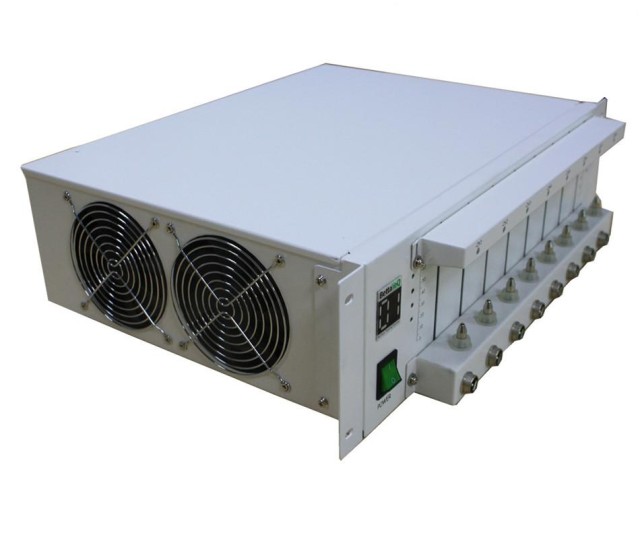
battery material
8-Channel Battery Capacity Tester Sub-Container Capacity Tester
Item Number : BC-07
Price varies based on specs and customizations

Shipping:
Contact us to get shipping details Enjoy On-time Dispatch Guarantee.
Why Choose Us
Reliable PartnerEasy ordering process, quality products, and dedicated support for your business success.
Application
The Channel Lithium Battery Tester Analyzer is an eight-channel battery analyzer that analyzes small coin/cylindrical/pouch cells from 0.001 mA to 10 mA, up to 5V. Each channel of the analyzer has an independent constant current and constant voltage source, which can be programmed and controlled by computer software. The system provides most of the applications in the field of battery testing such as electrode material research, battery performance testing, small-scale battery formation, capacity grading, and battery pack testing. Its main purpose is to test capacity, battery life, charge and discharge current, charge and discharge curve.
Detail & Parts
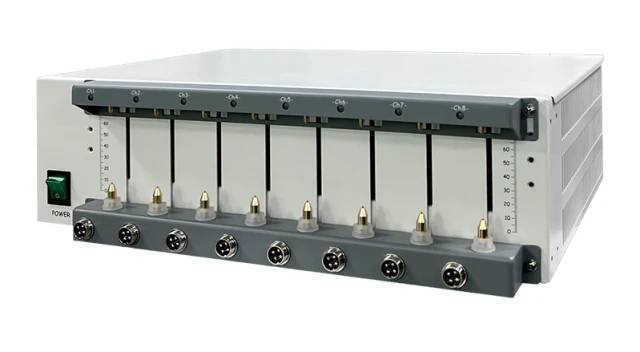
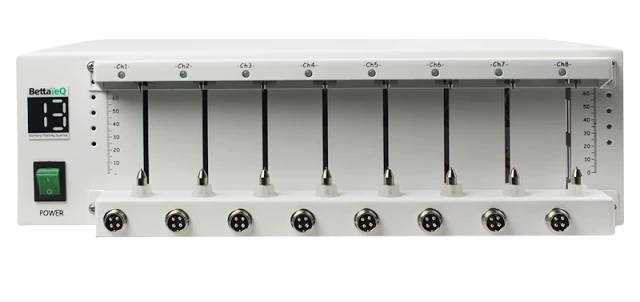
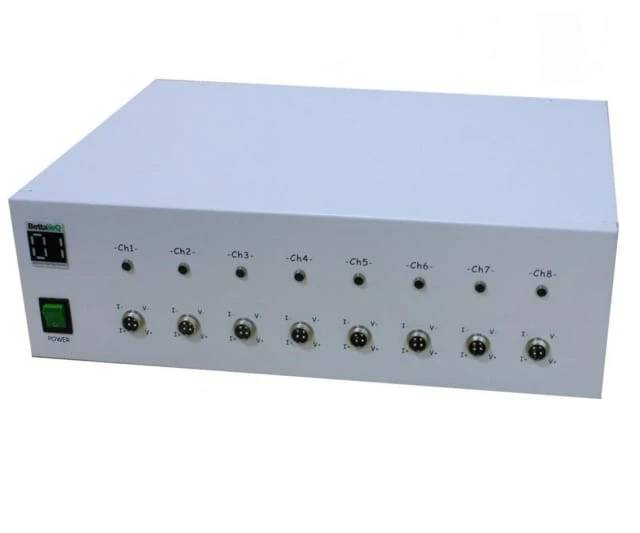
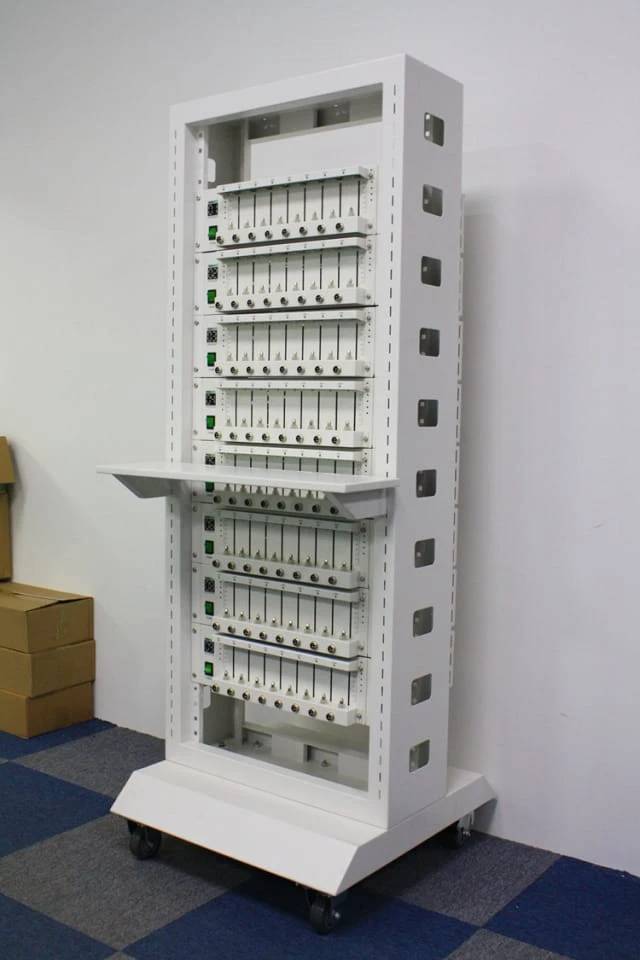
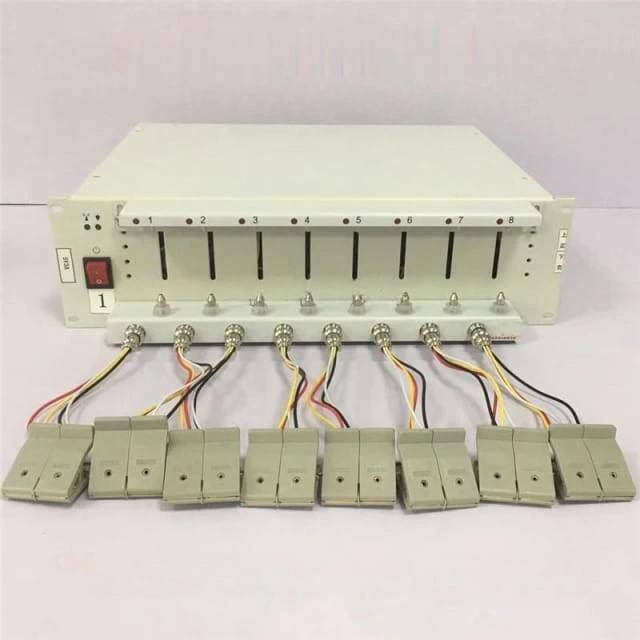
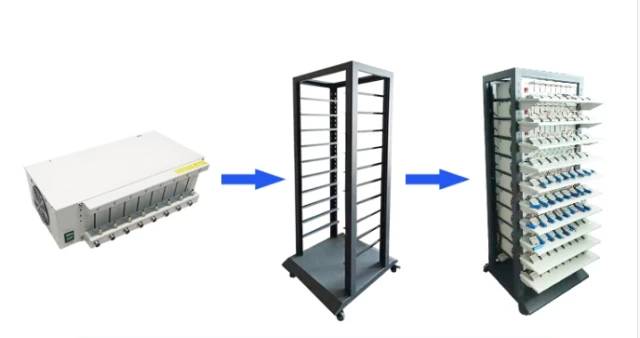
Advantages
- High energy storage efficiency and enhanced safety measures.
- Intelligent management and humanized design.
- Easy to maintain, upgrade, and expand capacity on demand.
- Improve battery storage efficiency and extend battery life.
- It plays an important role in reducing battery accidents.
Technical specifications
| Electricity requirement | 110V AC or 220V AC selectable for universal use |
| Power Consumption | 4W |
| Current |
|
| Voltage |
|
| Data register conditions | Time interval: 1 - 900s |
| Max. measurement cycles | 9999 cycles |
| Product Dimensions | W460mm *D350mm * H90mm |
| Channels |
|
| Programs & Software |
|
| Test Reports and Curves for analysis |
|
| Protection and Auto-recover | If the power failure occurs during testing, the system will shut down all operating channels. Once power is recovered, the system will automatically resume those stopped channels and ensure that the test is normally conducted, so that no cases will lose any data. |
| Battery Holders | Two types of battery holders are included in the standard package:
|
| Compliance | CE Certified |
| Net Weight | 12 kg |
FAQ
What Types Of Batteries Can Be Tested Using A Battery Comprehensive Tester?
What Is A Battery Storage Cabinet?
The Basic Structure Of The Battery Compartment.
What Are The Main Functions Of A Battery Internal Resistance Tester?
What Is The Purpose Of An 8-channel Battery Sub-container Capacity Tester?
What Does A Handheld Lithium Battery Analyzer Do?
What Is The Function Of A Cylindrical Battery Steel Case?
4.8
out of
5
Impressive device! The ability to analyze various battery types is a game-changer. I highly recommend it.
4.9
out of
5
User-friendly software with real-time monitoring enhances the testing experience. This analyzer is worth every penny!
4.7
out of
5
The auto-recovery feature is a lifesaver during power outages. Data integrity is maintained, saving valuable time.
4.8
out of
5
The 8 independent channels allow for efficient multitasking. Testing multiple batteries simultaneously is a breeze!
4.9
out of
5
The wide range of current and voltage options makes it suitable for diverse battery types. A versatile and reliable analyzer.
4.7
out of
5
The compact design saves valuable bench space. It's a great addition to any battery testing lab.
4.8
out of
5
The accuracy and precision of this analyzer are remarkable. Trustworthy results are crucial in our research.
4.9
out of
5
The included battery holders cater to a variety of battery sizes. No need for additional accessories.
4.7
out of
5
The CE certification ensures compliance with international standards. Quality assurance at its best!
4.8
out of
5
The ability to create different types of curves based on user definition is incredibly useful for data analysis.
4.9
out of
5
The data reports generated by the software are comprehensive and easy to understand. Analyzing test results is a breeze.
4.7
out of
5
The calibration software ensures accurate measurements. Maintaining the integrity of our data is paramount.
REQUEST A QUOTE
Our professional team will reply to you within one business day. Please feel free to contact us!
Related Products
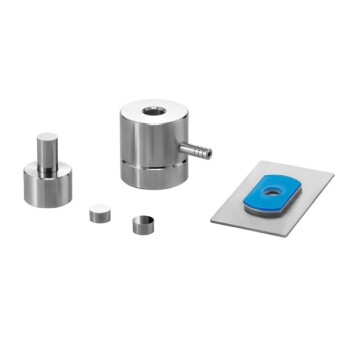
Easily release samples from our lab infrared press mold for accurate testing. Ideal for battery, cement, ceramics, and other sample preparation research. Customizable sizes available.
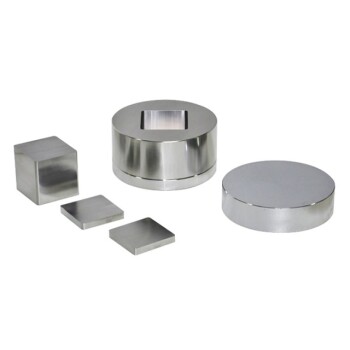
Square Lab Press Mold for Laboratory Applications
Create uniform samples easily with Square Lab Press Mold - available in various sizes. Ideal for battery, cement, ceramics, and more. Custom sizes available.

Aluminum Foil Current Collector for Lithium Battery
The surface of aluminum foil is extremely clean and hygienic, and no bacteria or microorganisms can grow on it. It is a non-toxic, tasteless and plastic packaging material.
Related Articles

Revolutionizing Quality Control: The Ultimate Guide to Handheld Lithium Battery Analyzers
Explore the advanced features and applications of handheld lithium battery analyzers, including 24/7 operation, fast analysis, and precise elemental composition. Ideal for mass production and quality control in various industries.

Comprehensive Guide to Handheld Lithium Battery Analyzers: Features, Applications, and Maintenance
Explore the advanced capabilities of handheld lithium battery analyzers, including their use in quality control, recycling, and resource analysis. Learn about daily maintenance and industry applications.

Design and Application of Reference Electrodes in Lithium Batteries
An in-depth analysis of the design, features, and applications of reference electrodes in lithium batteries.
How Leak Rate Testing Protects Vacuum Furnace Performance and Product Quality
Learn how leak rate testing with helium spectrometry protects vacuum furnace performance, prevents contamination, and ensures product quality in aerospace and semiconductor manufacturing.